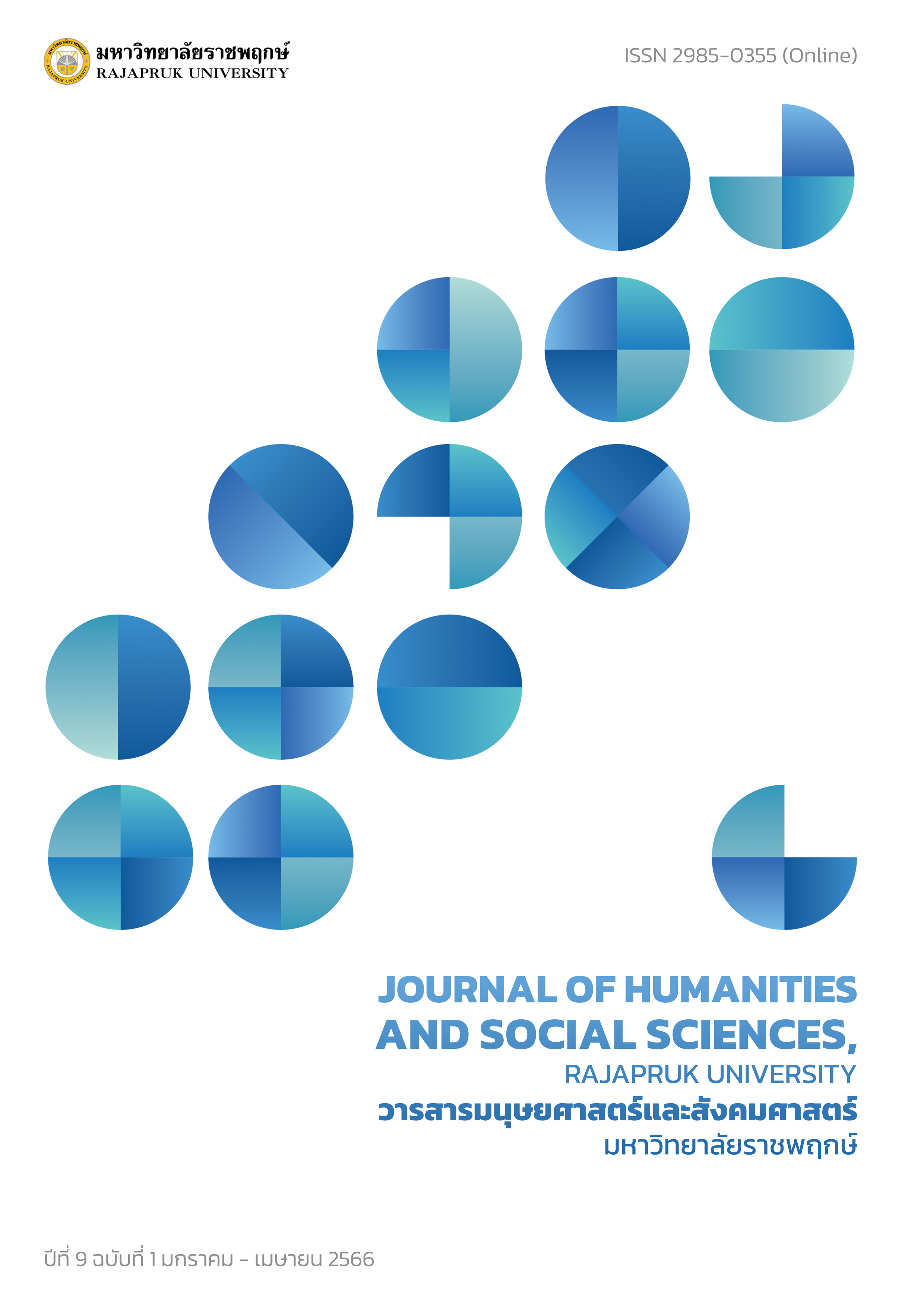ทักษะการเรียนรู้ตลอดชีวิตสำหรับเด็กในสถานสงเคราะห์
Main Article Content
บทคัดย่อ
การวิจัยนี้มีวัตถุประสงค์เพื่อศึกษาทักษะการเรียนรู้ตลอดชีวิตสำหรับเด็กในสถานสงเคราะห์ ในการเตรียมความพร้อมเพื่อกลับคืนสู่สังคม การศึกษาเป็นวิจัยแบบผสมผสานวิธี โดยใช้แบบสัมภาษณ์เชิงลึกในการเก็บข้อมูลจากผู้ที่เคยเป็นเด็กในสถานสงเคราะห์และประสบความสำเร็จในชีวิตเมื่อออกจากสถานสงเคราะห์ไปใช้ชีวิตในสังคม จำนวน 9 คน และหัวหน้างานของผู้ที่เคยเป็นเด็กในสถานสงเคราะห์ จำนวน 9 คน และแบบสอบถามเก็บข้อมูลจากผู้ที่เป็นเด็กในสถานสงเคราะห์ภาครัฐบาลในปัจจุบันทั่วประเทศทั้งสิ้น 16 แห่ง อายุระหว่าง 15-18 ปี จำนวน 296 คน และเจ้าหน้าที่ในสถานสงเคราะห์จำนวน 219 คน ผลการวิจัย พบว่า ทักษะการเรียนรู้ตลอดชีวิตที่จำเป็นสำหรับเด็กในสถานสงเคราะห์ ประกอบด้วย ทักษะความคิดริเริ่มสร้างสรรค์ (ค่าเฉลี่ย=3.62, SD=0.76) ทักษะความเข้าใจต่างวัฒนธรรม ต่างกระบวนทัศน์ และการร่วมมือกับเครือข่ายต่าง ๆ ทำงานร่วมกับผู้อื่น (ค่าเฉลี่ย=3.58 SD=0.83) ทักษะการคิดอย่างมีวิจารณญาณและการแก้ปัญหา (ค่าเฉลี่ย=3.55, SD=0.72) ทักษะด้านสุขภาพจิต จัดการกับความเครียด ทักษะความมีเมตตากรุณา มีวินัย คุณธรรม จริยธรรม (ค่าเฉลี่ย=3.55, SD=0.76) ทักษะด้านอาชีพ และการจัดการเวลา (ค่าเฉลี่ย=3.53, SD=0.75) ทักษะการเขียน (ค่าเฉลี่ย=3.51, SD=0.76) ทักษะการอ่าน (ค่าเฉลี่ย=3.49, SD=0.79) ทักษะการสื่อสาร สารสนเทศ คอมพิวเตอร์และการรู้เท่าทันสื่อ (ค่าเฉลี่ย=3.44, SD=0.78) ทักษะด้านการเงิน (ค่าเฉลี่ย=3.41, SD=0.78) และทักษะการคิดเลข คำนวณ (ค่าเฉลี่ย=3.20, SD=0.79)
Article Details
เอกสารอ้างอิง
กรมกิจการเด็กและเยาวชน. (2560). รายงานการประเมินผลการดำเนินงานของกรมกิจการเด็กและเยาวชน (ดย.) ตามแผนปฏิบัติราชการและแผนการใช้จ่ายงบประมาณ ประจำปีงบประมาณ พ.ศ.2560. กรุงเทพฯ: กระทรวงการพัฒนาสังคมและความมั่นคงของมนุษย์.
กรมกิจการเด็กและเยาวชน. (2561). สถิติข้อมูลและสถานการณ์ด้านเด็กและเยาวชนประจำปี 2561. กรุงเทพฯ: กระทรวงการพัฒนาสังคมและความมั่นคงของมนุษย์.
กองทุนสนับสนุนส่งเสริมสุขภาพ. (2561). รายงานประจำปี 2561 สสส. กรุงเทพฯ: สำนักงานกองทุนสนับสนุนส่งเสริมสุขภาพ.
กองยุทธศาสตร์และแผนงาน. (2560). รายงานประจำปีกรมสุขภาพจิต 2560. กรุงเทพฯ: กระทรวงสาธารณสุข.
เบญจวรรณ ถนอมชยธวัช แลคณะ. (2559). ทักษะแห่งศตวรรษที่ 21 ความท้าทายในการพัฒนานักศึกษา. วารสารเครือข่ายวิทยาลัยพยาบาลและการสาธารณสุขภาคใต้, 3(2): 208-222.
พิชญา ดีมี และ เอื้อมพร หลินเจริญ. (2560). การพัฒนาแนวทางการประเมินทักษะการเรียนรู้และนวัตกรรมของผู้เรียนตามแนวคิดการประเมินผู้เรียนในศตวรรษที่ 21. วารสารมหาวิทยาลัยนเรศวร, 10(2): 139-151.
ไพฑูรย์ สินลารัตน์. (2557ก). ครูในศตวรรษที่ 21. กรุงเทพฯ: วิทยาลัยครุศาสตร์ มหาวิทยาลัยธุรกิจบัณฑิตย์.
ไพฑูรย์ สินลารัตน์. (2557ข). เพื่อความเป็นผู้นำของการครุศึกษาไทย. กรุงเทพฯ: วิทยาลัยครุศาสตร์ มหาวิทยาลัยธุรกิจบัณฑิตย์.
วิจารณ์ พานิช. (2555). การสร้างการเรียนรู้สู่ศตวรรษที่ 21. กรุงเทพฯ: มูลนิธิสยามกัมมาจล.
สุบิน ไชยยะ และคณะ. (2558). ทักษะที่จำเป็นต่อการเรียนรู้ตลอดชิวิตของนักศึกษามหาวิทยาลัย. สงขลานครินท์ฉบับสังคมศาสตร์ และมนุษย์ศาสตร์, 21(3): 149-176.
สุริยเดว ทรีปาตี. (2559). การพัฒนาศักยภาพวัยรุ่นและเยาวชนด้วยพลังบวก. กรุงเทพฯ: มูลนิธิเด็ก.
อาชัญญา รัตนอุบล. (2551). การเรียนรู้และพัฒนาการของผู้ใหญ่. กรุงเทพฯ: ภาควิชาการศึกษานอกโรงเรียน คณะครุศาสตร์ จุฬาลงกรณ์มหาวิทยาลัย.
อาชัญญา รัตนอุบล. (2562) แนวคิดการส่งเสริมการศึกษาตลอดชีวิตในสังคมไทย. กรุงเทพฯ: สำนักพิมพ์จุฬาลงกรณ์มหาวิทยาลัย.
Borges, B. (2018). Lifelong learning as a source of well-being and successful aging. Revista, 38: 35-46.
Cotton K. (1998). Education for lifelong learning: Literature synthesis. Washington DC: OERI.
Crockett, Lee. (2018). 6 ways to build lifelong learning skill with your learner. Retrieved on October 10th, 2018, from https://www.wabisabilearning.com/blog/6-lifelong-learning-skills.
Dong W. (2004). Improving students lifelong learning skill in Circuit analysis. The China Paper: 75-78.
European Society of Association Executives. (2007). What is lifelong learning?. Retrieved on August 5th, 2018, from http://www.esae.org/articles /2007_08_005.pdf.
Hanewald, R. (2012). Cultivation lifelong learning skills in Undergraduate student through the Collaborative Creation of digital knowledge map. Procedia Social and Behavioral Sciences, 69: 847-853.
Knapper C. (2006). Lifelong learning means effective and sustainable learning reasons ideas concrete measures. Retrieved on December 9th, 2018, from http://www.ciea.ch/documents/s06_ref_knapper_e.pdf.
Smith, J. and Spurling, A. (1999). Lifelong learning riding the tiger. London: Cassell.

